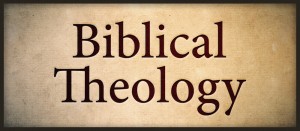
INTRODUCTION
A. Why study theology?
1. Because theological-mindedness, assuming that it is centered on sound teaching and true spirituality, is the best remedy against being ‘blown here and there by every wind of teaching and by the cunning and craftiness of men in their deceitful scheming’ (Ephesians 4:14).
2. Every Christian is called to be a theologian.
(a) You don’t have to have a degree in theology to be a theologian.
(b) You don’t have to be a minister to be a theologian.
(c) You don’t have to be in full-time Christian service to be a theologian.
3. The pastor’s task is to prepare others for works of service ‘so that the body of Christ may be built up … in the knowledge of the Son of God (Ephesians 4:12–13).
(a) ‘Do your best to present yourself to God as one approved, a workman who does not need to be ashamed and who correctly handles the word of truth’ (2 Timothy 2:15).
(b) ‘You, however, know all about my teaching’ (2 Timothy 3:10).
(c) ‘For the time will come when men will not put up with sound doctrine’ (2 Timothy 4:3).
4. The present trend toward man-centredness and ‘what’s in it for me?’ type of thinking has created a vacuum that has left the church in a powerless and superficial state.
(a) Too many Christians cannot tell you for sure what they believe or why they believe it.
(b) Too many Christians know nothing of the history of the Christian church.
(1) Church history is the laboratory of theology.
(2) Knowledge of the past will help us to understand the present and face the future.
p 9 5. All of us need motivation to be disciplined.
(a) This book may help motivate us to get on with learning that is long overdue.
(b) It may help us discipline our minds that they will be filled with godly knowledge.
B. Why theology and not just the Bible?
1. One can learn facts about the Bible and miss the important principles that lie behind these facts.
(a) It is one thing to know the story of Adam and Eve, quite another, for example, to know:
(1) The implications for marriage and the family.
(2) The nature of sin, temptation and results of the Fall.
(b) It is one thing to know that Jesus died on the cross, quite another to know:
(1) What the blood of Jesus meant to God the Father.
(2) What the blood of Jesus means to us.
2. Theology is partly shaped by church history.
(a) None of us can live in isolation from the past.
(1) We all have our biases.
(2) They came largely from those who lived before us.
(b) The Apostle Paul built his teaching on those who preceded him, e.g., Abraham and David (Romans 4:1–8).
(1) Our minds have been shaped by great thinkers as well.
(2) We often quote Luther and Calvin; they quoted Augustine and Athanasius.
(c) Some say, ‘But I will just read the Bible like Paul. I don’t need Augustine or Athanasius or Calvin.’
(1) Chances are, they will still have their prejudices.
(2) We need to understand our prejudices, how we got them and how to correct them where necessary.
Kendall, R. T. (1996). Understanding Theology, Volume One (pp. 8–9). Ross-shire, Great Britain: Christian Focus.